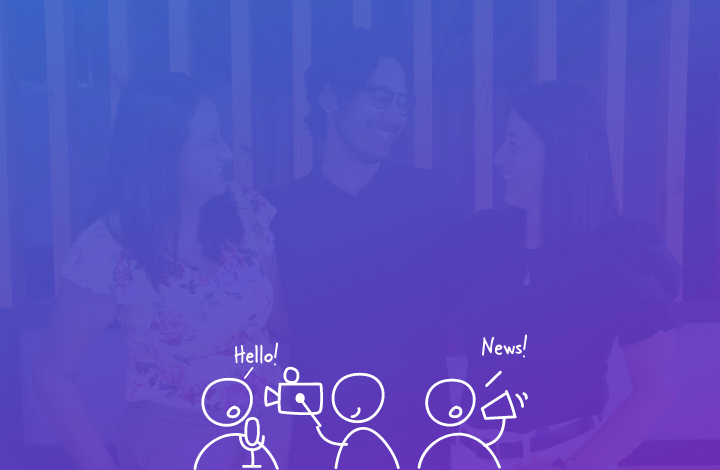July 25, 2024

Software Development Outsourcing
AI in Healthcare: A New Era of Patient Care
AI in Healthcare: A New Era of Patient Care. Is no longer a futuristic concept. It’s a tangible reality reshaping the way we approach patient care, disease management, and healthcare delivery. From streamlining administrative tasks to powering groundbreaking medical research, AI is demonstrating its potential to revolutionize the industry.

This blog post will delve deep into the multifaceted world of AI in healthcare, exploring its applications, benefits, challenges, and the future it holds. We’ll examine real-world examples, discuss the ethical implications, and provide insights into how AI in healthcare is poised to transform the patient experience.
The Role of AI in Healthcare: A Deep Dive
AI in healthcare is a broad term encompassing a variety of technologies and applications. At its core, AI refers to computer systems capable of performing tasks that typically require human intelligence, such as learning, reasoning, problem-solving, and decision-making.
AI in Healthcare: Diagnosis and Treatment
One of the most promising areas of AI in healthcare is in diagnosis and treatment. Advanced algorithms can analyze medical images, such as X-rays, MRIs, and CT scans, with incredible accuracy, often outperforming human radiologists. This can lead to earlier detection of diseases, improved treatment planning, and ultimately, better patient outcomes.
AI in healthcare is also making strides in drug discovery and development. By analyzing vast amounts of data, AI systems can identify potential drug candidates, predict drug interactions, and accelerate the clinical trial process. This has the potential to bring new life-saving treatments to market faster and more efficiently.
AI in Healthcare: Personalized Medicine
Every patient is unique, and AI in healthcare is enabling a new era of personalized medicine. By analyzing a patient’s genetic makeup, medical history, and lifestyle factors, AI algorithms can create tailored treatment plans. This approach can improve treatment effectiveness, reduce side effects, and enhance patient satisfaction.
AI in Healthcare: Patient Care and Engagement
AI in healthcare is transforming the way healthcare providers interact with patients. Chatbots and virtual assistants powered by AI can provide patients with information, answer questions, and even schedule appointments. This can improve patient engagement, access to care, and overall patient experience.
Moreover, AI-powered wearables and mobile apps are enabling patients to monitor their health conditions and proactively manage their care. This can lead to earlier detection of health issues, better adherence to treatment plans, and improved outcomes.
Benefits of AI in Healthcare
The potential benefits of AI in healthcare are vast and far-reaching. Some of the key advantages include:
Improved accuracy and efficiency
AI algorithms can analyze data with incredible speed and accuracy, leading to faster and more reliable diagnoses.
Enhanced patient outcomes
Early detection of diseases, personalized treatment plans, and better patient engagement can all contribute to improved health outcomes.
Reduced costs
AI in healthcare can streamline administrative tasks, reduce medical errors, and optimize resource utilization, leading to lower healthcare costs.
Accelerated drug discovery
AI can speed up the drug development process, bringing new treatments to market faster.
Improved access to care
AI-powered telemedicine and remote patient monitoring can expand access to care for underserved populations.
Challenges and Considerations for AI in Healthcare
AI in Healthcare: A New Era of Patient Care. While the potential benefits of AI in healthcare are significant, there are also challenges and considerations to address. Some of the key issues include:
Data privacy and security: Protecting patient data is paramount, and robust security measures must be in place to prevent data breaches.
Bias and fairness: AI algorithms are only as good as the data they are trained on, and biases in the data can lead to biased outcomes.
Ethical implications: The use of AI in healthcare raises ethical questions, such as the role of AI in decision-making and the potential for job displacement.
Regulatory hurdles: The rapid pace of AI development has outpaced the regulatory landscape, creating challenges for bringing AI-powered solutions to market.
The Future of AI in Healthcare: A New Era of Patient Care
The future of AI in healthcare is bright, with endless possibilities for innovation and improvement. As AI technology continues to advance, we can expect to see even more sophisticated applications emerging, such as AI-powered surgical robots, predictive analytics for disease outbreaks, and AI-driven personalized prevention programs.
AI in Healthcare: A New Era of Patient Care. To fully realize the potential of AI in healthcare, collaboration between healthcare providers, technology companies, and policymakers is essential. By working together, we can address the challenges and ensure that AI is used responsibly and ethically to improve the health and well-being of people around the world.
Conclusion: Embracing the AI in Healthcare Revolution
AI in healthcare is not a replacement for human expertise but rather a powerful tool to augment it. By harnessing the power of AI, we can create a healthcare system that is more efficient, effective, and patient-centered.
As we move forward, it is crucial to approach AI in healthcare with a focus on human-centered design, ethical considerations, and continuous learning. By doing so, we can unlock the full potential of AI to transform healthcare delivery and improve the lives of millions of people.
AI in healthcare is a rapidly evolving field, and it is essential to stay informed about the latest developments and trends.
Accelerating the Pace of Innovation
The pharmaceutical industry is a cornerstone of modern healthcare, yet drug discovery remains a time-consuming and costly endeavor. AI in healthcare is emerging as a powerful catalyst to accelerate this process. By leveraging vast datasets and advanced algorithms, AI can significantly enhance drug discovery efficiency and success rates.
AI in Healthcare: Unlocking the Secrets of Disease
One of the most promising applications of AI in healthcare is in understanding the complexities of diseases. By analyzing genetic, clinical, and epidemiological data, AI algorithms can identify patterns and biomarkers associated with specific conditions. This knowledge can inform the development of targeted therapies and improve patient outcomes.
For instance, AI in healthcare has been instrumental in advancing research on cancer. By analyzing vast amounts of genomic data, researchers can identify specific genetic mutations that drive tumor growth. This information can be used to develop personalized cancer treatments that target these mutations, increasing the chances of successful therapy.
AI in Healthcare: Designing Novel Therapeutics
AI in healthcare is also revolutionizing the design of new drugs. Traditional drug discovery methods often involve time-consuming and expensive trial-and-error processes. AI algorithms can accelerate this process by predicting the properties of potential drug molecules and identifying promising candidates for further development.
Moreover, AI in healthcare can be used to optimize drug delivery systems. By analyzing factors such as drug solubility, stability, and bioavailability, AI algorithms can help design drug formulations that improve efficacy and reduce side effects.
AI in Healthcare: A New Era of Patient Care. Overcoming Challenges and Realizing Potential
While the potential of AI in healthcare for drug discovery is immense, there are challenges to overcome. Access to high-quality data is crucial for training AI algorithms, and ensuring data privacy and security is paramount. Additionally, translating AI-generated insights into actionable drug development plans requires close collaboration between scientists, data scientists, and clinicians.
To fully realize the potential of AI in healthcare in drug discovery, it is essential to invest in research and development, foster public-private partnerships, and establish clear regulatory frameworks. By addressing these challenges, we can accelerate the pace of drug discovery and bring life-saving therapies to patients faster.
AI in Healthcare: A New Era of Patient Care. A Beacon of Hope
AI in healthcare is transforming the landscape of drug discovery, offering new hope for patients with unmet medical needs. By accelerating research, improving drug design, and enhancing our understanding of diseases, AI is poised to revolutionize the pharmaceutical industry and ultimately improve human health.
As AI technology continues to advance, we can anticipate even more groundbreaking discoveries and innovations in drug development. By embracing AI in healthcare, we are taking a significant step towards a future where diseases are conquered and human life is extended.
Ready to take the next step? Book a meeting now with our team and explore how we can become your ideal strategic partner to fill gaps in your team. Together, let’s turn your vision into a reality.
Learn more about Nearshore Staff augmentation Latin America in 2024 here









